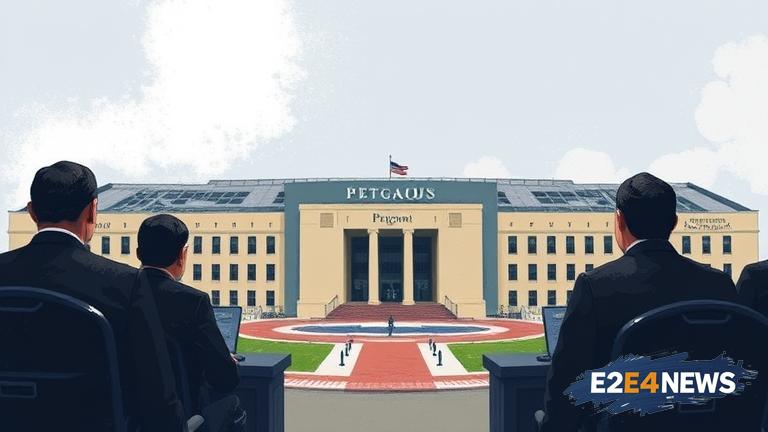The Defense Tech Office, a key component of the US Department of Defense, is undergoing significant staff reductions, with a 40% cut in personnel. This move is largely attributed to budget constraints, which have been a recurring challenge for the department in recent years. The staff reduction is expected to have far-reaching implications for the office’s ability to drive innovation and support the development of cutting-edge technologies. The Defense Tech Office has been instrumental in fostering collaboration between the defense industry, academia, and government agencies, with a focus on advancing technologies such as artificial intelligence, cybersecurity, and hypersonics. The office’s work has been critical in helping the US military maintain its technological edge over adversaries. However, the staff cuts are likely to hinder the office’s ability to effectively execute its mission, potentially compromising national security. The reduction in staff will also impact the office’s ability to provide support to small businesses and startups, which are often at the forefront of innovation. The Defense Tech Office has been a key player in promoting the development of emerging technologies, and its reduced capacity may have a ripple effect throughout the defense ecosystem. The staff cuts are part of a broader effort to streamline the department’s operations and reduce costs. However, critics argue that the cuts may be short-sighted, given the critical role that the Defense Tech Office plays in supporting national security. The office’s work has been widely recognized as essential to the US military’s ability to stay ahead of the curve in terms of technology. The staff reduction is also likely to impact morale within the office, as employees face uncertainty about their future. The Defense Tech Office has been a hub for talent, attracting some of the best and brightest minds in the field. The loss of personnel will not only impact the office’s ability to execute its mission but also undermine its ability to attract and retain top talent. The staff cuts are a reflection of the broader budget challenges facing the US Department of Defense. The department has been struggling to balance its budget, with competing priorities and limited resources. The Defense Tech Office is not the only component of the department to face staff reductions, as other offices and agencies are also being impacted. The staff cuts are likely to have a lasting impact on the US military’s ability to innovate and adapt to emerging threats. The Defense Tech Office has been a key player in promoting the development of technologies that are critical to national security, such as cybersecurity and artificial intelligence. The reduction in staff will undermine the office’s ability to provide support to these efforts, potentially compromising national security. The staff cuts are a concern for lawmakers, who are calling for greater investment in the Defense Tech Office and other components of the department that support innovation. The Defense Tech Office has been a model for other countries, which have sought to replicate its success in promoting innovation and supporting the development of emerging technologies. The staff cuts are likely to undermine the US military’s ability to maintain its technological edge over adversaries, potentially compromising national security. The reduction in staff will also impact the office’s ability to collaborate with international partners, which is critical to advancing shared security interests. The Defense Tech Office has been a key player in promoting the development of technologies that are critical to national security, and its reduced capacity will have far-reaching implications for the US military and its allies.





